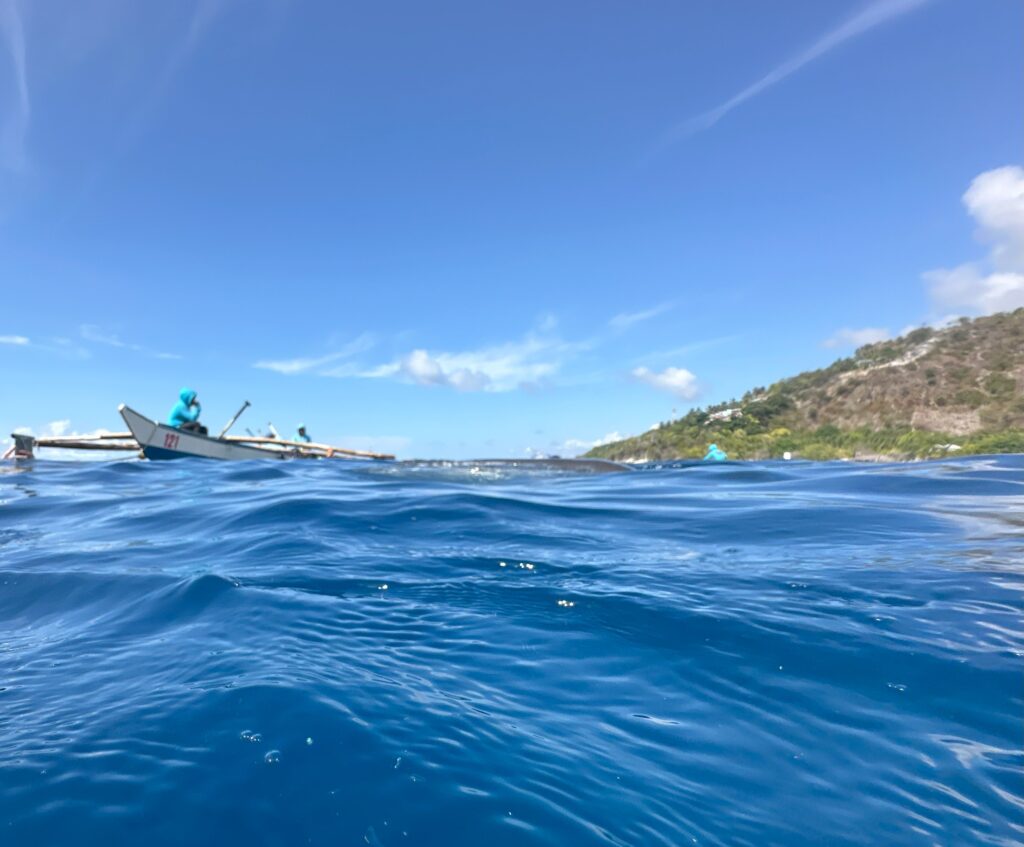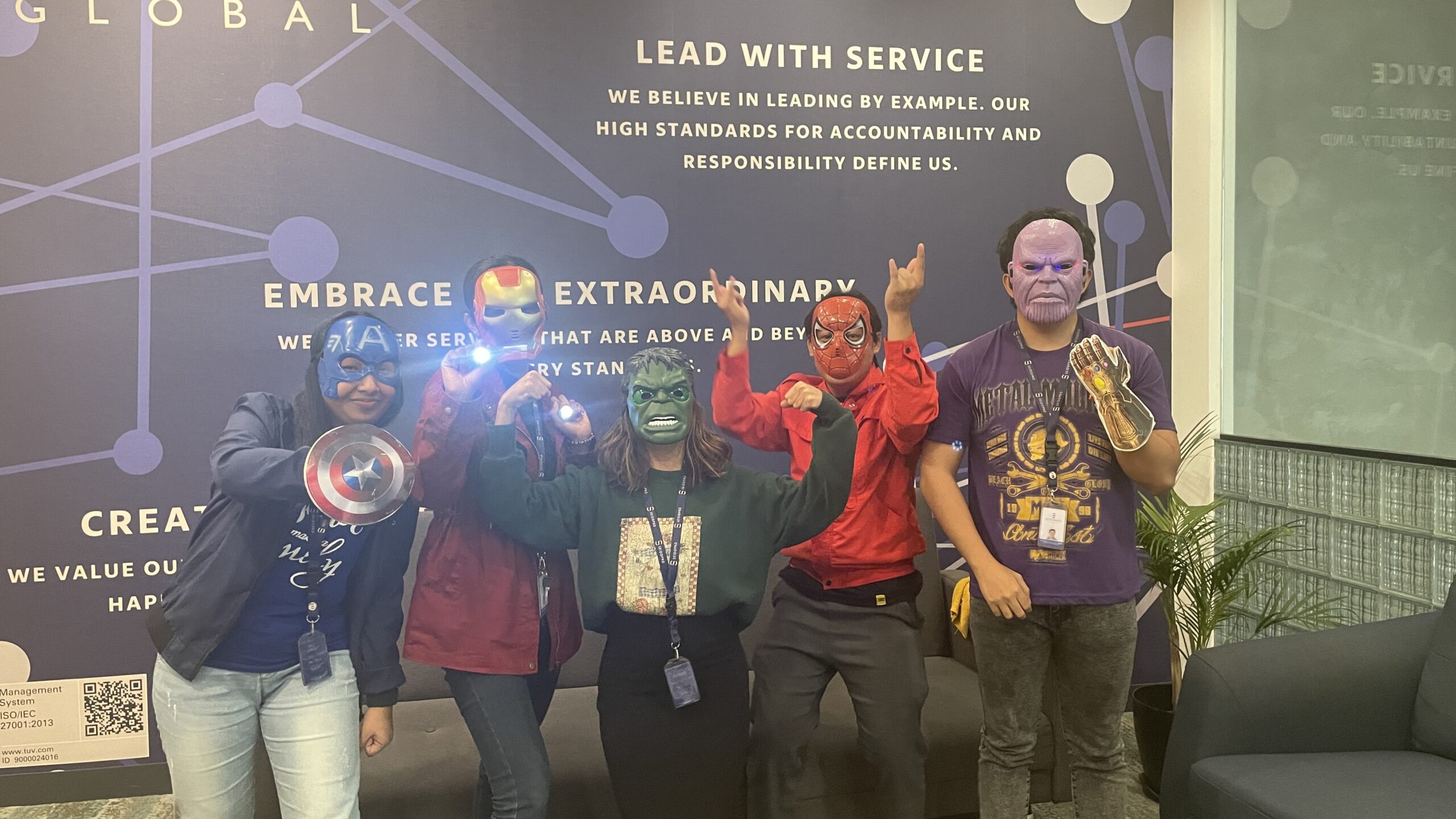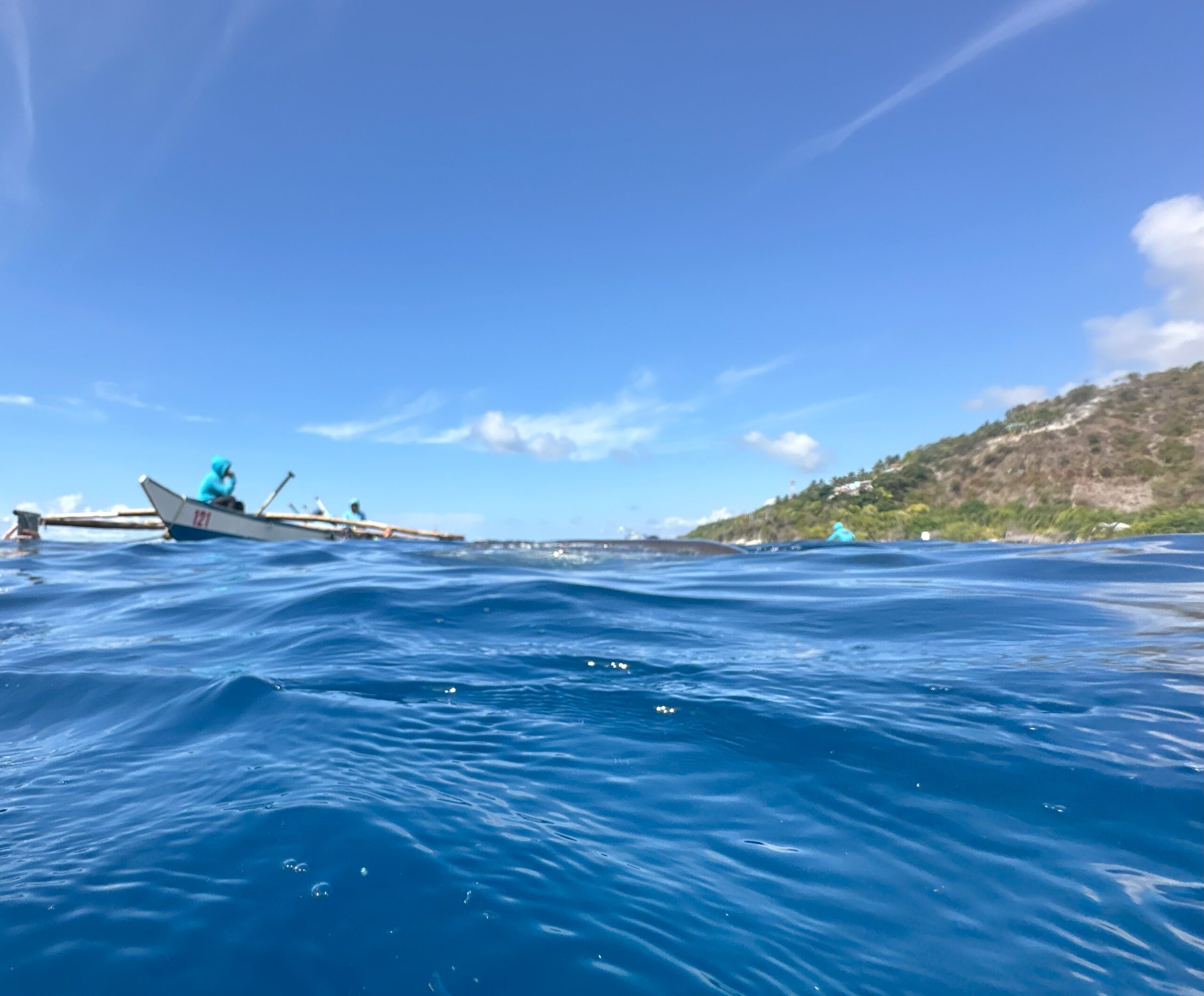by Aaron Jay Siruno
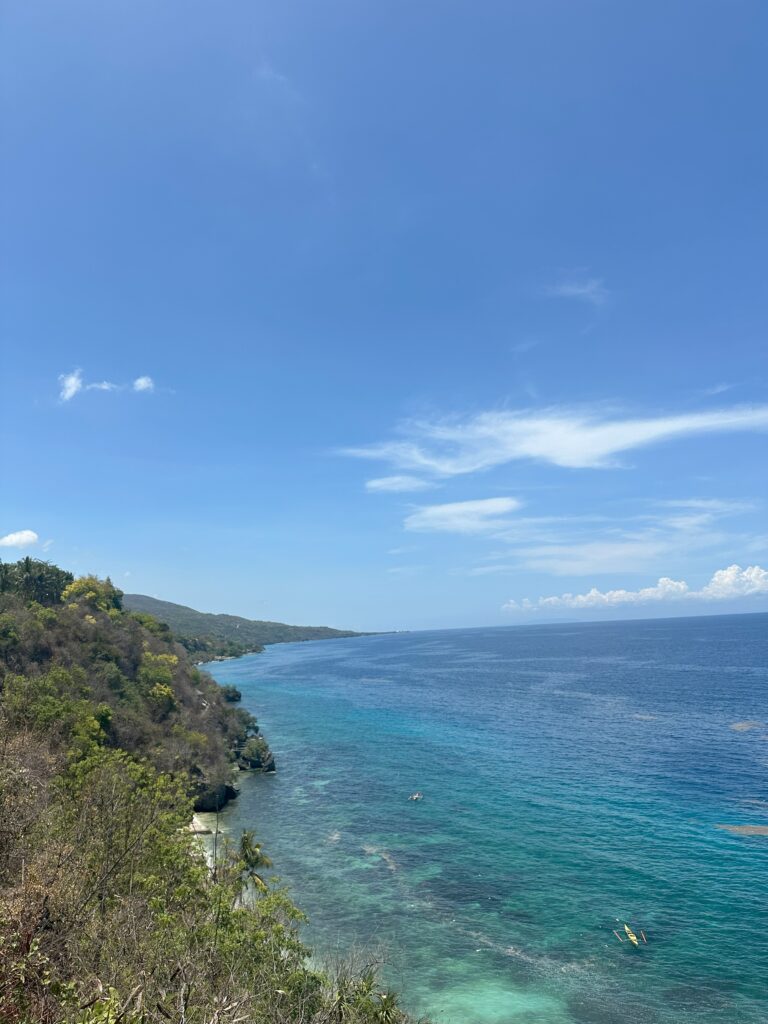
Oslob, a quaint coastal town in the southern part of Cebu, Philippines, has captured the world’s attention with its awe-inspiring marine life and vibrant ecosystems. Nestled in the Coral Triangle, renowned for its rich marine biodiversity, Oslob has become synonymous with whale shark watching and eco-tourism. Our recent learning tour in Oslob provided an opportunity to immerse ourselves in its natural wonders and understand the importance of sustainable tourism in preserving this unique environment.
The highlight of any trip to Oslob is undoubtedly the chance to snorkel with whale sharks, locally known as butanding or tuki. These gentle giants, the largest fish on the planet, frequent the waters of Oslob, offering tourists a rare and unforgettable experience. The first sight of a whale shark gliding gracefully through the water left us in awe. Their sheer size and serene demeanor made for a surreal encounter, emphasizing the need to protect these majestic creatures.
While whale shark watching is a major draw for tourists, it also poses significant challenges. The increase in tourism can disrupt the natural behavior of these animals and impact their habitat. Ensuring that whale shark interactions are conducted responsibly is paramount. This involves adhering to strict guidelines, such as maintaining a safe distance, avoiding the use of flash photography, and limiting the number of boats and swimmers at any given time. Additionally, educating tourists about the importance of respecting marine life is crucial in promoting sustainable tourism.
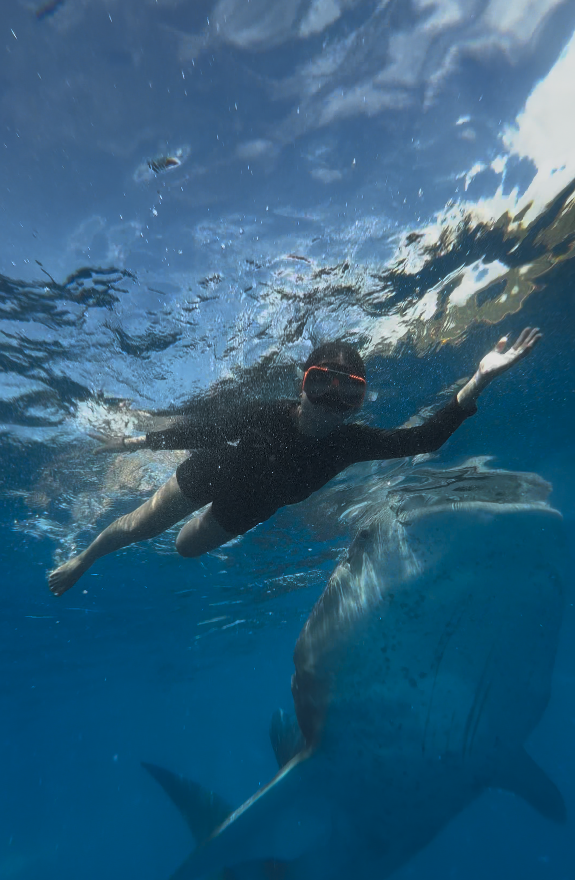
Beyond the marine adventures, our tour included a visit to the enchanting Monkey Sanctuary in Oslob. This haven for wild monkeys offers a glimpse into the lives of these playful and intelligent creatures. As we trekked through the lush forest, the sounds of chattering monkeys filled the air. Observing their interactions and behaviors in their natural habitat was both fascinating and enlightening.
Similar to the whale sharks, the monkeys in Oslob face challenges due to increasing human activity. Habitat destruction, food scarcity, and human-wildlife conflict are pressing concerns. Preserving their natural habitat is essential to ensure the monkeys have a healthy environment to thrive in. This involves protecting the forested areas from deforestation, minimizing human encroachment, and providing ample food sources. Furthermore, promoting responsible tourism practices, such as not feeding the monkeys and maintaining a respectful distance, can help mitigate negative impacts.
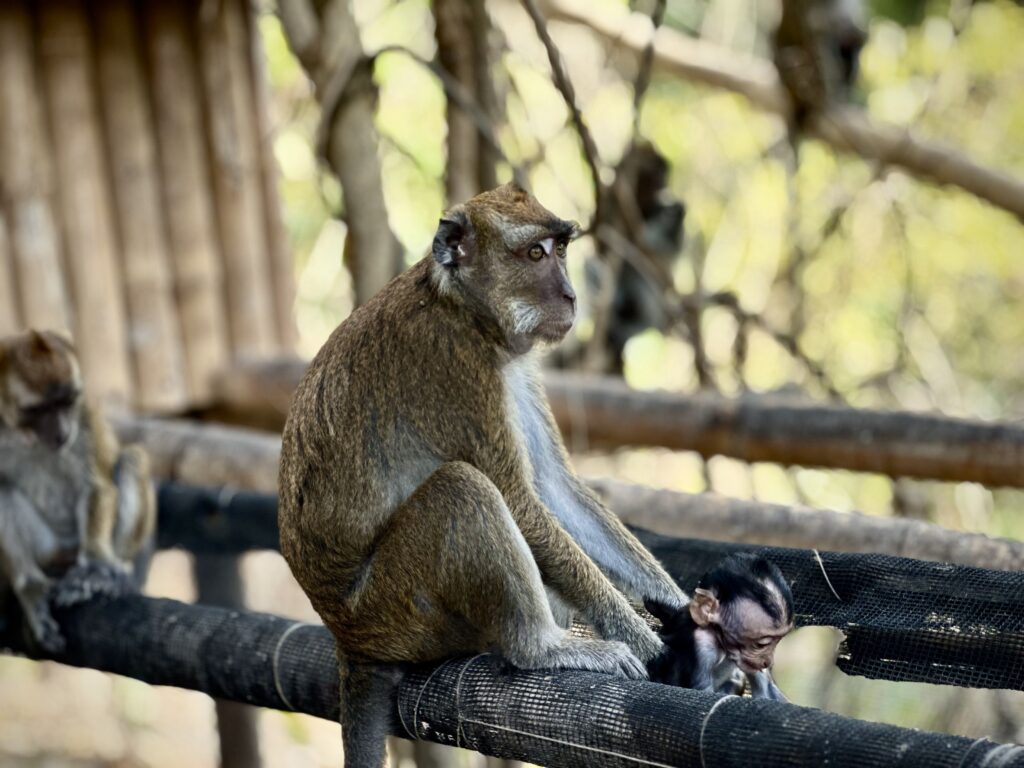
The benefits of preserving Oslob’s natural habitats extend beyond wildlife. Sustainable tourism can significantly boost the local economy. By attracting eco-conscious travelers, the local government can increase its revenue and reinvest in conservation efforts. Moreover, promoting Oslob as a model for responsible tourism can enhance its reputation and draw even more visitors. This creates a positive cycle where tourism supports conservation, and conservation, in turn, attracts more tourists.
Our Oslob learning tour was a profound experience that underscored the delicate balance between tourism and conservation. Encountering the majestic whale sharks and playful monkeys highlighted the beauty and fragility of Oslob’s ecosystems. Additionally, the friendships forged with the local community and non-local government partners emphasized the importance of collaboration in these efforts. The people of Oslob were exceptionally friendly and honest, making our stay even more enjoyable. The beach on Sumilon Island, with its crystal-clear waters and colorful fishes, was another highlight, showcasing the natural beauty of the region.
The travel experience was truly worth it, leaving an indelible mark, especially for first-time visitors. While challenges exist, they also present opportunities for collective action toward sustainable tourism. By fostering a deep respect for nature and implementing responsible practices, we can ensure that Oslob remains a haven for both wildlife and tourists for generations to come.
